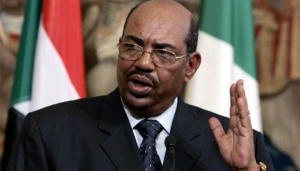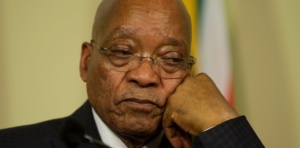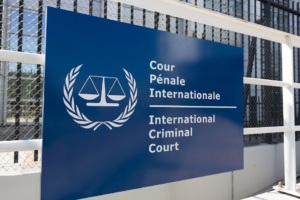War crimes judges have ruled that South Africa flouted its duties to the International Criminal Court (ICC) in 2015 by failing to arrest visiting Sudanese President, Omar Hassan al-Bashir.

Cuno Tarfusser, the presiding judge, said on Thursday that Pretoria’s inaction was “contrary” to the court’s guiding Rome Statute and prevented it from prosecuting Bashir on 10 charges of war crimes, including three of genocide in Sudan’s western Darfur region.
But the judges stopped short of referring the matter to the UN Security Council for further action, with Tarfusser sharply criticising the world body, saying such a move would be “effectively futile” since the council had failed to act in six previous referrals over the Bashir case.

Rights groups welcomed Thursday’s ruling, saying it sent a warning to other nations.
It was “a victory for international justice”, said Arnold Tsunga, Africa regional director for the International Commission of Jurists.
“It is an extremely important step toward tackling impunity in Sudan and worldwide,” he said.

Amnesty International’s Netsanet Belay said it was “shocking that other states parties such as Jordan are also failing in their obligations to arrest Al-Bashir and this decision makes it clear that they do so in flagrant violation of international law”.
Despite two international arrest warrants issued in 2009 and 2010, Bashir remains at large and in office as conflict continues to rage in Darfur.
In June 2015, he attended an African Union summit in Johannesburg, and despite frantic consultations between ICC and South African officials later flew out of the country unimpeded.
On the eve of al-Bashir’s arrival in South Africa, the ICC issued several calls for his arrest to the South African government. Bashir was allowed to leave after the summit, a court subsequently ruled that the government was wrong to have allowed him to leave despite the ICC warrant of arrest.
It was in light of this event that Jeff Radebe, a minister in the presidency, announced that South Africa was reconsidering its participation in the ICC.
Pretoria’s lawyers had argued at an April ICC hearing there “was no duty under international law on South Africa to arrest” Bashir, arguing there was “nothing at all” in the UN resolution to waive his diplomatic immunity.
But ICC prosecutor Julian Nicholls shot back that South Africa “had the ability to arrest and surrender him and it chose not to do so”.
Ultimately, the only reason Pretoria did not arrest Mr Bashir was that South Africa “disagreed with … the law as set out… so it did not comply,” he said.
Judges agreed in Thursday’s ruling that international obligations cannot “simply be put aside” if a country disagrees with them, and ruled that in this case Bashir did not enjoy immunity.
Expert opinions had widely expected that judges at the International Criminal Court would find that Pretoria, one of the founding members of the tribunal, failed to co-operate with the ICC based in The Hague.
It also ruled that South Africa was not entitled to decide unilaterally not to cooperate with the International Court.
On the ruling, Carsten Stahn, international criminal law professor at Leiden University, told AFP that “The ruling is… fundamental for future compliance” .
A decision against South Africa “would send an important message that states cannot negotiate (their) legal obligations with the court,” he added.
However, with the court’s ruling against Pretoria, it has few practical sanctions to offer. And a defiant South African President Jacob Zuma has reiterated threats to pull out of the ICC.
While the judges are not refering the case to the court’s Assembly of States Parties – the body representing all the member nations – or the UN Security Council for further action; Kaajal Ramjathan-Keogh, executive director at the Southern Africa Litigation Centre, cautioned that any effect, “looking at the ICC’s history, is going to be minimal”.
“Neither the ASP or the Security Council have taken any strict measures against countries that have failed to cooperate. I can’t see that in this instance they will take a different approach,” she said.
The Security Council asked the ICC in 2005 to probe the crimes in Darfur, where at least 300,000 people have been killed and 2.5 million displaced since ethnic minorities took up arms against Bashir’s Arab-dominated government in 2003, according to UN figures.
Bashir, who has been president of Sudan since 1993, has denied all the charges and continues to travel.
Based in The Hague, the ICC does not have its own police or enforcement body and relies on other countries to arrest or surrender suspects.
And while 124 nations have signed the Rome Statute which underpins the court, it has struggled to shore up its legitimacy at times, faced last year with unprecedented withdrawals.
Bashir, who has been president of Sudan since 1993, has denied all 10 charges against him, including three of genocide and two of war crimes.
And he continues to travel, with Khartoum announcing on Monday he will visit Moscow for the first time in August.
Kindly follow us on twitter:@AfricanVoice2










